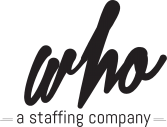How to Interview and Hire with IQ and EQ Guiding the Process
Last year we talked about EQ (Emotional Quotient) vs IQ (Intelligence Quotient) and how these designations can measure and impact your career success. EQ is defined as the ability to validly reason with emotions and use emotions to enhance thought. IQ is a score that is derived from a test that looks at logical reasoning, word comprehension, and math skills and relates to intellectual pursuits.
But what do these differing skill designations mean for employers during the interview and hiring process? Do you hire candidates based on their EQ or their IQ? Do you look for a candidate with the skills (IQ) or hire based on the person (EQ) and train for the skill? It all depends on what your organization needs.
EQ vs IQ candidates
Emotional Intelligence at one time was an obscure concept that was mostly studied in academic journals. But it is now a legitimately recognized term, from specific curriculum developed for emotional learning to workplace hiring practices.
Business consultant Greg Chicoine offered these statistics in a 2018 LinkedIn article:
People with average EQ outperform a high IQ person 70 percent of the time
EQ drives more than 50 percent of how we respond to life, while IQ drives only 20 percent
EQ accounts for 60 percent of job performance
"Some critics began to realize that high intelligence was no guarantee for success in life," said author Kendra Cherry in an article for the Verywell Mind website. "But today experts recognize that IQ is not the only determinant of life success. Instead, it is part of a complex array of influences - one that includes emotional intelligence. Many companies now mandate emotional intelligence training and use EQ tests as part of the hiring process."
For many companies, the interest in high EQ stems primarily from the desire to find strong leaders for their organizations. Cherry said research has shown that individuals with strong leadership potential tend to be more emotionally intelligent, suggesting it is an important quality for the workplace.
"For example," Cherry said, "one insurance company discovered that EQ could play a vital role in sales success" as agents with high EQ abilities like empathy, initiative, and self-confidence, selling larger-valued policies.
But IQ is still recognized as an important element of success, especially in the area of academic achievement. Both EQ and IQ play roles in the overall success and experts say the greatest benefit lies in learning to improve skills in multiple areas.
EQ vs IQ in candidate search
As you begin the hiring and interviewing process, Chicoine says it is important to clearly articulate the job description and the goals for the position. Then you can add EQ and IQ to your hiring tools like resumes and references.
Once reviewing educational performance (which can be an indicator of a high IQ), interviewers can use behavior-based interview questions and then determine how the candidate responded based on the 12 factors that determine a person's EQ:
Adaptability
Change management
Common sense
Communication skills
Decision making
Emotional control
Empathy
Honesty & trust
Organizational skills
Resourcefulness
Social & relational skills
Stress tolerance
"Using behavior-based interview questions to identify a candidate's emotional intelligence is one strategy. It is a critical skill in the workforce," said Erin Patton in an article for SHRM's website.
Patton offered tips for interviewers as they juggle getting to know their candidates through both emotional and cognitive intelligence:
Don't spend less time on interviews for hourly roles than you would for a manager role. These positions are important and good interviews can reduce turnover.
Do incorporate behavior-based interview questions, listen for responses that include specifics, and ask follow-up questions if necessary.
EQ vs IQ in interviewing
Interviewers need to remember that emotional intelligence questions are typically open-ended since they require candidates to think deeply about their responses. They may sometimes even require a conversation or discourse between the candidate and interviewer.
Elaine Mead provided some examples of interview questions to gauge EQ in an article for PositivePsychology.com:
How do you de-stress after a bad day at work?
What is something you've achieved that you're most proud of and why?
Who are some of your top role models and why do they inspire you?
How do you celebrate success?
How do you respond when a co-worker challenges you?
Have you ever had to change your behavior, either at work or home, if so, why did you have to change and how did you change?
How do you recover from failure?
What kind of behavior makes you angry/annoyed?
Mead also suggests questions that are a different format but combine the idea of EQ with scenario-based questions
Tell me about a time when your mood had an impact on your work (this could be positively or negatively).
Tell me about a time when you had to neutralize a stressful situation in a professional environment.
Tell me about a time when you had to work cohesively as a team with people you didn't like
EQ vs IQ in hiring
In the hypothetical hiring situation, Chicoine said you often will have to go with your gut. But you can access their responses to emotional intelligence questions: were their answers detailed and substantive, did they make eye contact, how often did they use "we," "us," and "team."
"Now go straight to your gut," he said. "Do you want them on your team because they are the perfect EQ or IQ fit, or are you simply filling another job with no long-term regard for the impact of the hire on the organization? The right candidate for the job will have a well-balanced blend of EQ and IQ."
WHO Staffing can help you as you evaluate candidates and get the best talent - whether they have high IQs or EQs - for your organization. Please contact us and let's start a conversation.



